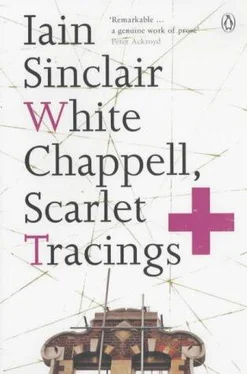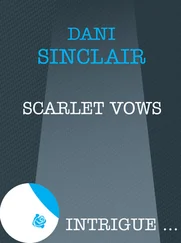my failure, God is giving me
more than I tried for.
But, Howard, there is a
wrong, an intense wrong, in
to the Divine Cause. ‘What I
see in nature,’ he said, ‘is the
Divine power acting within
an imposed limit. God, self-limited,
is the universe. God is
not the universe, but it flows
from Him and becomes
phenomenal by the laws of
limitation.’
I could not at the time but
check him by quoting Goethe–
laying severe stress upon hope,
and urging on him that the poet
did not seem to admit the likelihood
that we should ever
realise it by seeking truth as it is.
Hinton would not, however,
be brought back to our everyday
views and imperfect ways
of thinking, but insisted that
we voluntarily hindered our
vision by the mere scientific
relation of facts as opposed to a
true philosophy of them.
Suppression and reappearance
in a new and higher form was
to him the fundamental law
of physiology. Organisms in
upward order, concoct, digest,
assimilate, ‘and corporeal to
incorporeal turn’.
Hinton’s thoughts on moral
subjects were of the same
our society running all
through our life, and it will be
made righter some day. I
dashed myself against it; but it
is not one man’s strength that
can move it. It was too much
for my brain; but it is by the
failure of some that others
succeed, and through my very
foolishness perhaps, there shall
come a better success to
others, perhaps more than any
cleverness or wisdom of mine
could have wrought. And I
hope I have learnt, too, to be
wiser. We have not come to
the end; though I am so
exhausted, that I seem scarcely
able to believe in anything
before me.
I cover my eyes from the sun
but my hands can no longer
keep out the light. I can see
through! Skin is glass. There is
nothing. The darkness turns,
turns, an eye on a pencil. It
turns faster. And faster. I do
not think now that it will ever
stop.
your loving father,
James Hinton
character as those on material.
The miserable, despised, and
abandoned outcasts of society,
sacrificed to the selfishness of
the well-to-do and respectable,
was a glaring instance of the
deception of the phenomenal.
I think I am justified in saying,
from my first intercourse
with him, that he thought
such facts illustrated the object
of Christ’s work on earth, as
showing us how contrary truth
is to appearance.
To descend to lower matters, I
may say that Hinton’s physical
energy always seemed to me as
great and indomitable as that
of his mind. Together they
afforded an example of intellectual
and bodily activity
rarely surpassed. The work he
did was well done, and by it he
laid stepping-stones for others
to advance upon.
Hinton’s life was not so full
of incident as it was full of
thought. He was one of the
pioneers of humanity through
the obscure and dark ways of
the senses to the region of
truth.
W. W. Gull
Ian Askead took us down to look into the fridges. He was a night porter at the Metropolitan, his fawn overall buttonless with rolled-up sleeves; wet-haired, constructing a smoke in his glass cubby-hole — the grim building itself frozen into a kind of malign silence. A mausoleum of impacted wasp-blocks.
We were nervous, oppressed by the locale, which gave him a status he did not have on the street. He had that benevolent Glaswegian charm that goes all the way through mania into self-annihilation. And he did it with a grin. There was an innocence here that would have fed the gas ovens. As victim or as operative. Just as it fell out.
It had been a quiet weekend and most of the fridges were empty. He found one that was tenanted and slid out the white bundle on its tray for our examination. A swaddled something, emitting traces of blue light. In a plastic bag like a Sainsbury’s chicken.
Askead, amused by our interest, produces the instruments of pathology, the saws, calipers, head-sets. He plugged in an electric-kettle.
On this stone slab with its sluices at the corners, like a slate billiard-table, the soul is cut free. The bird is sprung. Within this ring of false illumination and under this taint there is a bruised initiation. The conversations of the Indian doctors, the Irish students, are set into the greasy walls; uneradicated. As the skull splits, the words enter. As poison.
It is agreed. We will go with Askead to meet the Victor Haldin Death Cadre, an unlocated splinter of the Angry Brigade, meditating action.
*
Askead, then, sitting in what remains of his underpants, tactically black, on the edge of his mattress, his son, robust and nordic, like the product of an Aryan babyfarm, hands on bars of cot, pisses out a curve of clear gold water onto the matting. New morning. Askead lights the stub of last night’s cigarette.
As with old dopers, it’s difficult to get him moving . Our brief is insecure; we are potential film-makers, lacking only cameras and film-stock. We are invited neither to participate nor to witness. And Askead is only in this for the ruck. Theoretical Anarchy holds no charms for him. A good night out is going over Kilburn to trade insults in the Shamrock Lounge and wake up bleeding on alien pavements. On very good nights he wakes up authentically paralysed in the gutter. And comes home free in an ambulance.
One great night he will wake up in his own fridge.
His wife, who has some kind of position in the household, as child-minder, winning them the use of the basement, is ‘involved’ with a minor technocrat who dresses in Burton’s leisurewear. This pleases Askead — who sees it as a context for violence.
‘You’re a slimy little globe of damaged frog crap,’ he spits, gleefully, on sight of the lover, tearing all the buttons from his shirt, before his wife fells him with a cast-iron saucepan. Strong skulled, chipped, not shattered: not even a headache in the morning. The lover goes off to the office, his shirt-front held together with large pink nappy pins.
Stoke Newington is the neck of a killing bottle, wearing its entropy without guilt. Cinema-mosques disappearing under a generation of papers, groups, dates, meetings.
Brilliant brickwork of the blacks beating against the shaded Hassidic fringe. Scufflers working the gaps: a gentility that will bring it all down. Everything centred on the police barracks and its boastful spread of wanted posters.
At Abney Park we turn away, break from the pastiched New Kingdom glamour, into a wide leafy avenue. They are waiting, behind the curtains of an upper room.
Multiple locks and chains: everything but a password.
They’ve got the bottles, but not the petrol. Threats and handbooks and the insides of alarm-clocks. Present anger focuses on Redbridge. Barbed wire squat. Neo-fascist bootboys licensed to poleaxe, to sledgehammer, to evacuate. The wolf is at the door. They persuade with crowbars, rip out the plumbing. And this rhetoric is countered by fire-buckets, ball-bearings, paint pots. It is a frontier zone of demented doctrine. Everything’s boiling but the recipe’s been lost.
Denis is savagely bearded in a style that owes something to the cover of the Pan Books edition of The Dharma Bums . He wears a black vest, takes up threatening martial arts poses, moving sharply backwards and forwards across the window, compulsively checking out the empty street. His wife, Pearl, is, of course, pregnant again. And the credit for this seems to be awarded to Denis alone.
Читать дальше












